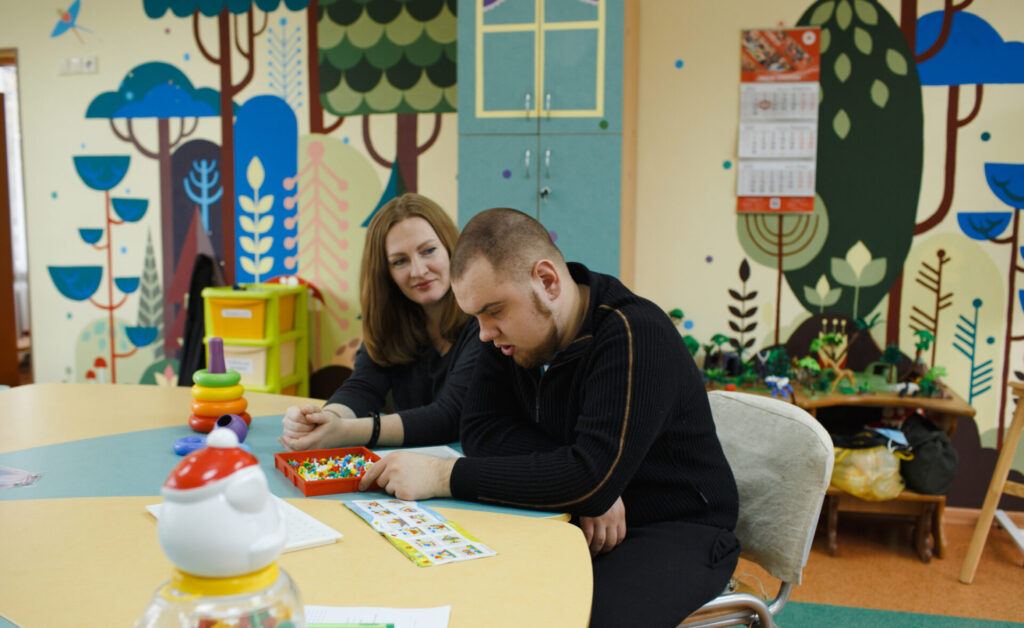The Role of Care Coordination
Care coordination is pivotal in ensuring seamless, comprehensive care for people across various health and social care settings, significantly contributing to preventing unnecessary hospital admissions. It involves organising care activities and sharing information to achieve safer and more effective care. Effective care coordination can reduce hospital admissions by ensuring that healthcare services are well-integrated and that people receive the necessary support to manage their health and well-being at home or in their communities.
One of the key components of care coordination is the alignment of healthcare services with the specific needs of care recipients. This process often includes:
- Comprehensive discharge planning
- Personalised care plans
- Multidisciplinary teams
- Medication management
- Follow-up care
By addressing potential gaps in care and ensuring continuity, healthcare providers can help reduce the risk of complications that might lead to hospital readmissions. Additionally, care coordination often involves collaboration among various healthcare professionals, including primary care providers, specialists, and community health teams, fostering a holistic approach to care.
Furthermore, care coordination supports the delivery of person-centred care, which focuses on the person’s specific needs rather than a one-size-fits-all approach. This individualised care is crucial for managing long-term health conditions and preventing hospital admissions due to preventable complications. By providing timely interventions and tailored support, healthcare systems can improve health outcomes and reduce the strain on hospital resources, ultimately leading to a more efficient and effective healthcare delivery system.
Strategies for Effective Care Coordination
Effective care coordination requires a strategic approach that involves several key practices aimed at improving the quality of care and reducing hospital admissions. These strategies include comprehensive discharge planning, medication management, and robust communication among healthcare providers. By focusing on these areas, care teams can ensure that the people they support receive the right care at the right time, thereby preventing unnecessary hospital admissions and enhancing overall health outcomes.

Multidisciplinary Teams
Multidisciplinary teams are crucial for effective care coordination as they bring together healthcare professionals from various fields to collaboratively manage a person’s health and care needs. By integrating diverse expertise—from doctors and nurses to occupational therapists and social workers—these teams ensure a comprehensive approach to health management. This collaboration allows for holistic care that addresses all aspects of a person’s well-being, thereby reducing the risk of hospital admissions. Through regular communication and shared decision-making, multidisciplinary teams can quickly identify and respond to health concerns, ensuring that timely interventions are made and tailored to each person’s specific needs.
Personalised Care Plans
Personalised care plans are fundamental to effective care coordination, focusing on creating tailored strategies that meet each person’s unique needs and preferences. These plans are developed collaboratively between healthcare providers and the person receiving care, considering the person’s medical history, current needs, lifestyle, and personal goals. By aligning the care plan with what is most important to the person, healthcare providers can ensure that the support provided is both relevant and effective, which can significantly reduce the likelihood of hospital admissions.
Personalised care plans also enhance care coordination by clearly outlining the roles and responsibilities of all healthcare professionals involved. This clarity ensures that everyone is working towards the same goals and that there is no duplication of services or conflicting advice, which can confuse and overwhelm people receiving care.
Crisis Management and Rapid Response
Crisis management and rapid response are critical components of effective care coordination, particularly for people who require complex care. When a crisis arises, timely and coordinated action can prevent the situation from escalating, which might otherwise lead to unnecessary hospital admissions. Rapid response teams, often comprised of healthcare professionals across various disciplines, are trained to quickly assess and address urgent health needs, stabilising the person’s condition and providing immediate care that can be managed outside a hospital setting. This approach not only prevents the need for emergency care but also supports people in maintaining stability in their home environments.
Moreover, having a robust crisis management plan in place ensures that everyone involved in the person’s care, from healthcare providers to family members, knows what steps to take during an emergency. This preparedness facilitates quick decision-making and resource allocation, reducing delays in treatment and mitigating the risks associated with unmanaged health crises. By effectively coordinating these efforts, healthcare teams can provide a seamless response that prioritises the person’s well-being, enhancing overall health outcomes and reducing the burden on hospital systems.
Home Care
Home care is essential for effective care coordination as it enables people to receive personalised and consistent care within the comfort of their own homes. This type of care supports ongoing health management, allowing healthcare professionals to monitor and address health conditions in real-time, which is crucial for preventing hospital admissions. By bringing healthcare services into the home environment, people are more likely to adhere to their care plans, as they can receive assistance with daily activities, medication management, and other essential services that might otherwise require hospital visits.
Furthermore, home care fosters stronger relationships between healthcare professionals, the people they support, and their families. These relationships are vital for building trust and ensuring all parties are engaged in the care process. Home care professionals can provide tailored support that aligns with the person’s unique needs and preferences, contributing to a more person-centred approach to care. By delivering care directly in the home, healthcare systems can reduce the risk of avoidable admissions and support people in maintaining their independence and quality of life.
Benefits of Proper Care Coordination
Proper care coordination offers numerous benefits, significantly enhancing the overall quality and efficiency of healthcare delivery. By ensuring that all aspects of a person’s care are aligned and well-managed, care coordination helps reduce the likelihood of hospital admissions, particularly those that are preventable or unnecessary. This streamlined approach enables healthcare providers to deliver timely and appropriate interventions, manage health conditions effectively, and provide continuous support. Additionally, care coordination fosters better communication and collaboration among healthcare professionals, which is crucial for delivering holistic, person-centred care.
Reduced Hospital Readmissions
Effective care coordination plays a pivotal role in reducing hospital readmissions, particularly those that are preventable. Health and care services can significantly reduce the risk of readmissions by ensuring seamless transitions between different levels of care and continuous support for people after they leave the hospital. This is especially crucial for managing long-term health conditions and mental health challenges, where consistent follow-up and proactive care management are essential. Coordinated efforts ensure that healthcare providers know each person’s health needs, allowing them to intervene early and prevent potential complications that could lead to hospital readmissions.
Moreover, by focusing on preventive measures such as medication management, education, and timely follow-up appointments, care coordination helps address the underlying risk factors contributing to preventable hospital admissions. This proactive approach enhances the overall quality of care and empowers people to take control of their health, reducing the likelihood of readmission and improving their long-term well-being.
Improved Outcomes
Care coordination improves health outcomes by ensuring that all healthcare interventions align with the person’s unique needs and circumstances. For people living with long-term health conditions, including mental health difficulties, having a coordinated care plan that addresses both physical and mental health aspects is vital for holistic recovery. This integrated approach promotes better management of health conditions, enhances the effectiveness of treatments, and supports people in achieving their health goals.
Additionally, improved outcomes are seen when healthcare providers work collaboratively across disciplines, facilitating a comprehensive care approach encompassing all aspects of a person’s health and well-being. By reducing gaps in care and ensuring that all necessary services are provided in a timely and coordinated manner, care coordination helps improve the immediate health outcomes and the overall quality of life for people receiving care.
Cost Savings
Proper care coordination can lead to significant cost savings for both healthcare systems and care recipients. By reducing the number of preventable hospital admissions and readmissions, healthcare systems can lower their operational costs, making resources available for other critical areas of care. For example, effective management of mental health conditions through coordinated care can decrease the need for costly emergency services and hospital stays, which are often more expensive than preventive care.
Additionally, by promoting efficient use of healthcare resources and avoiding unnecessary treatments or duplicate services, care coordination can help optimise healthcare spending. This benefits the healthcare system and can reduce potential out-of-pocket expenses for people, making it easier for them to access the care they need without financial strain. Overall, the cost savings achieved through proper care coordination contribute to a more sustainable healthcare model that supports better health outcomes for all.
Real Life Case Studies
Our case studies highlight the profound impact of personalised, person-centred care in transforming lives. Through comprehensive care coordination and a multidisciplinary approach, people with mental health needs can transition from institutional settings to more independent living environments. These stories demonstrate the effectiveness of tailored care plans, proactive support, and compassionate approaches in reducing behaviours of concern and improving overall well-being.
By focusing on each person’s unique needs and promoting their autonomy, care providers can create positive change, enhancing people’s quality of life and their ability to engage with the wider community.
Nurseline Community Services is Dedicated to Preventing Hospital Readmissions
At Nurseline Community Services, we are committed to preventing hospital readmissions by providing comprehensive, person-centred care that supports people in their journey towards independence and well-being. Our approach focuses on effective care coordination, ensuring that all aspects of a person’s health are managed proactively and holistically. By working closely with multidisciplinary teams, including Community Psychiatric Nurses, Positive Behavioural Support (PBS) Specialists, and other dedicated professionals, we develop tailored care plans that address each person’s unique needs. This collaborative approach helps to minimise the risk of hospital readmissions by providing the necessary support to manage mental health needs effectively in a community setting.
We understand that transitioning from a hospital to community living can be challenging, especially for people who require complex support. That’s why we employ innovative strategies such as phased transitions, hands-on support, and the use of effective communication tools. These methods empower people to regain confidence, manage their mental health more independently, and engage with their communities. By prioritising proactive care and personalised support, we not only reduce the risk of readmissions but also enhance the quality of life for the people we support.
If you or a loved one could benefit from our services, or if you have any questions about how we can help, please don’t hesitate to contact us. Our team is here to provide the support and guidance needed to ensure a smooth transition from hospital to home, fostering independence and well-being every step of the way.






